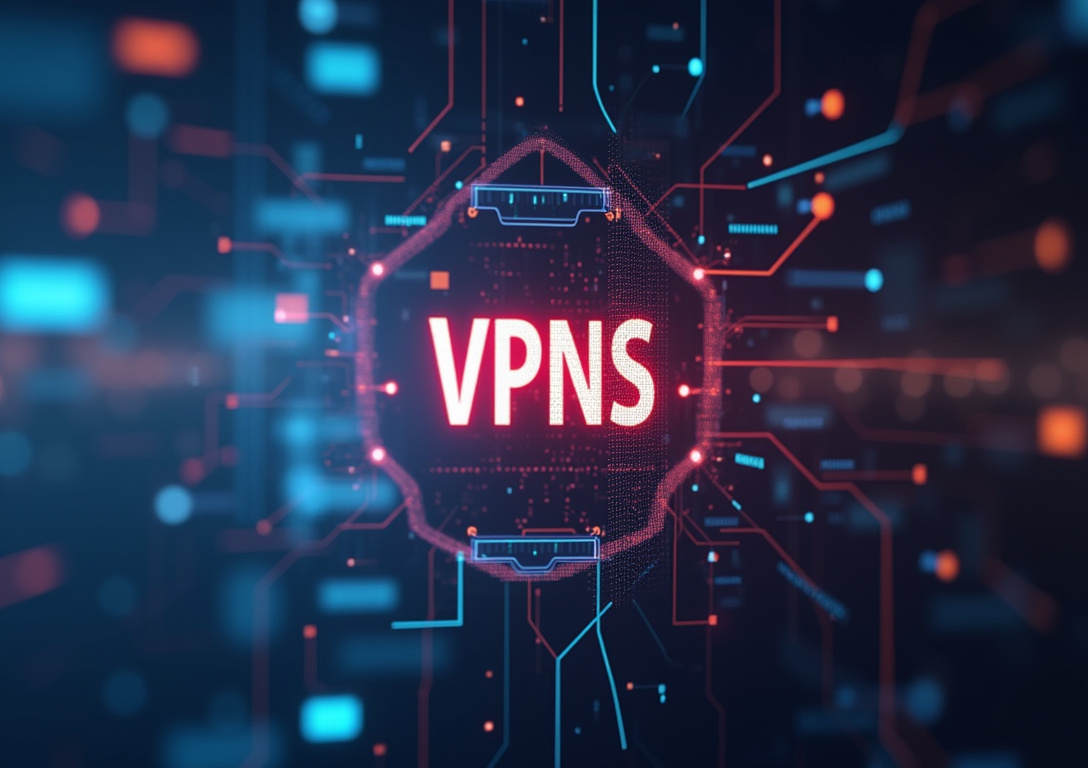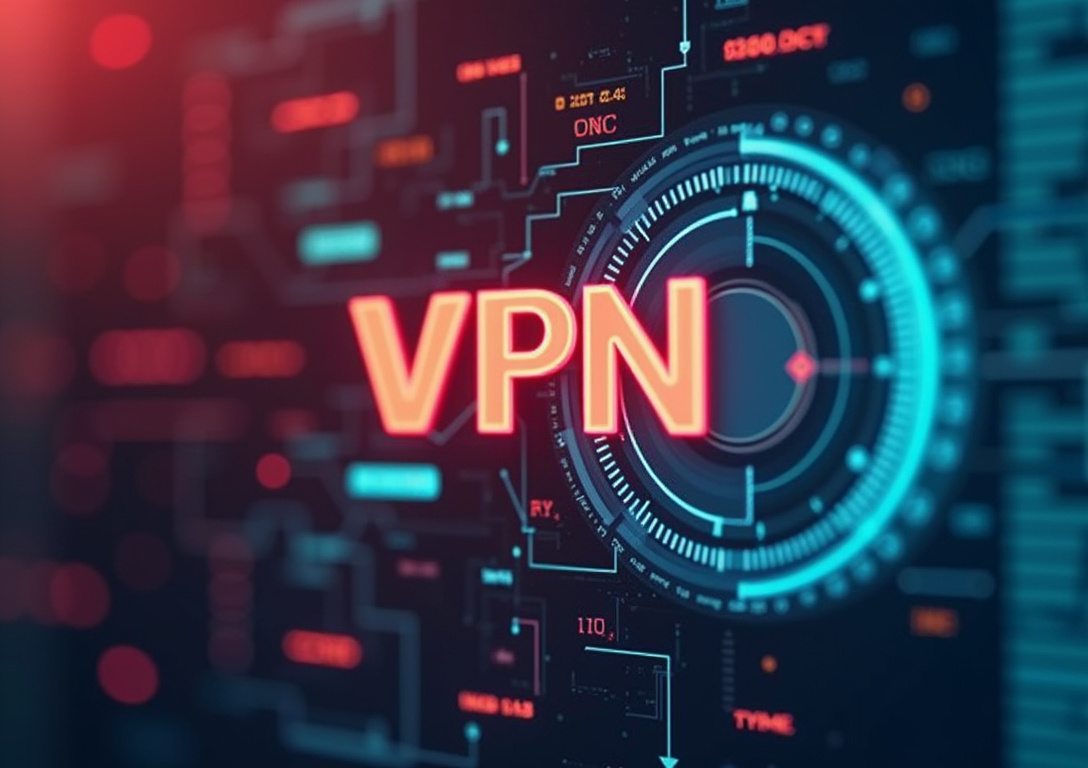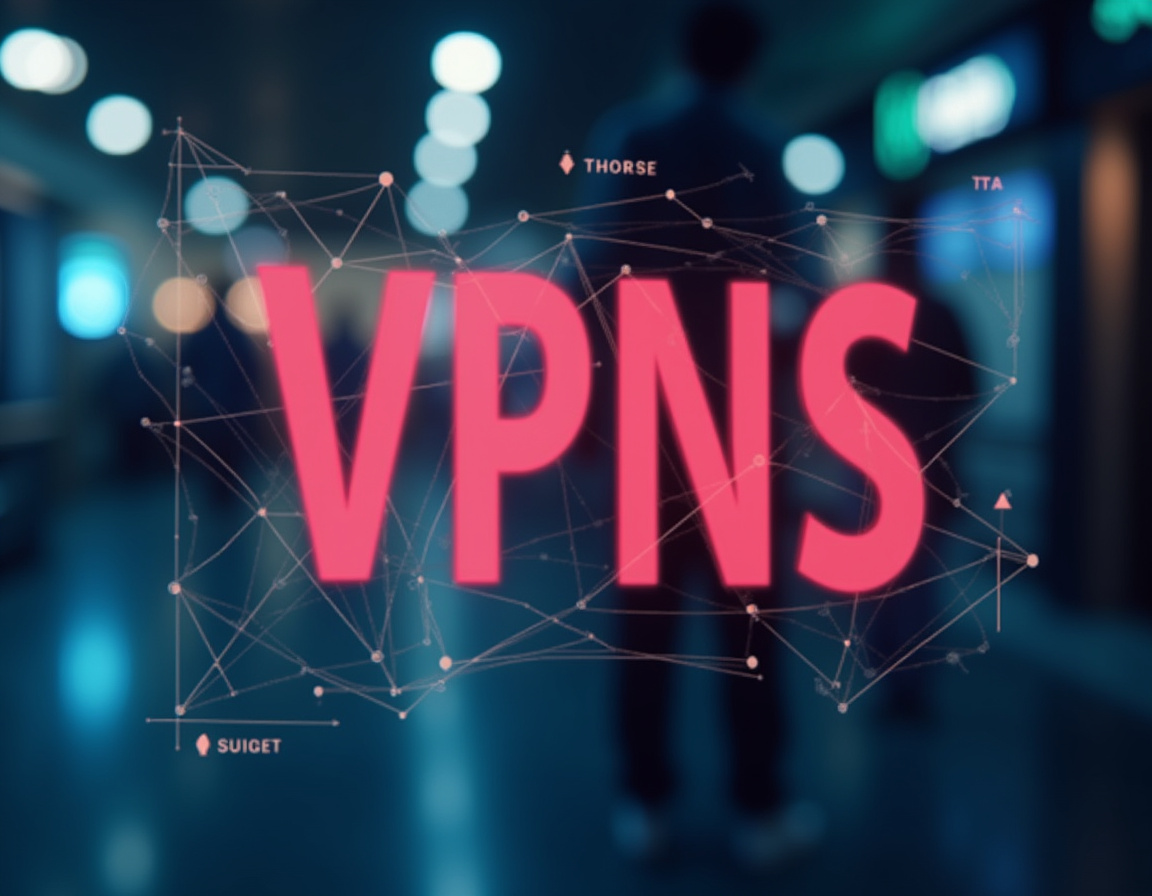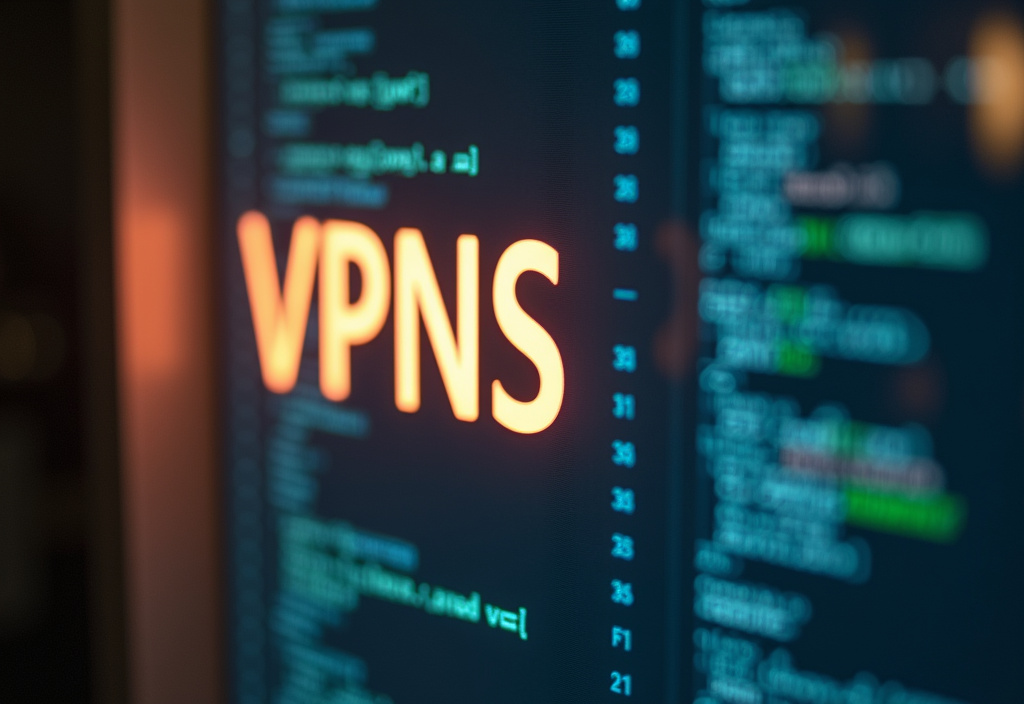VPNs for On-Demand Services: Protecting Customer Data
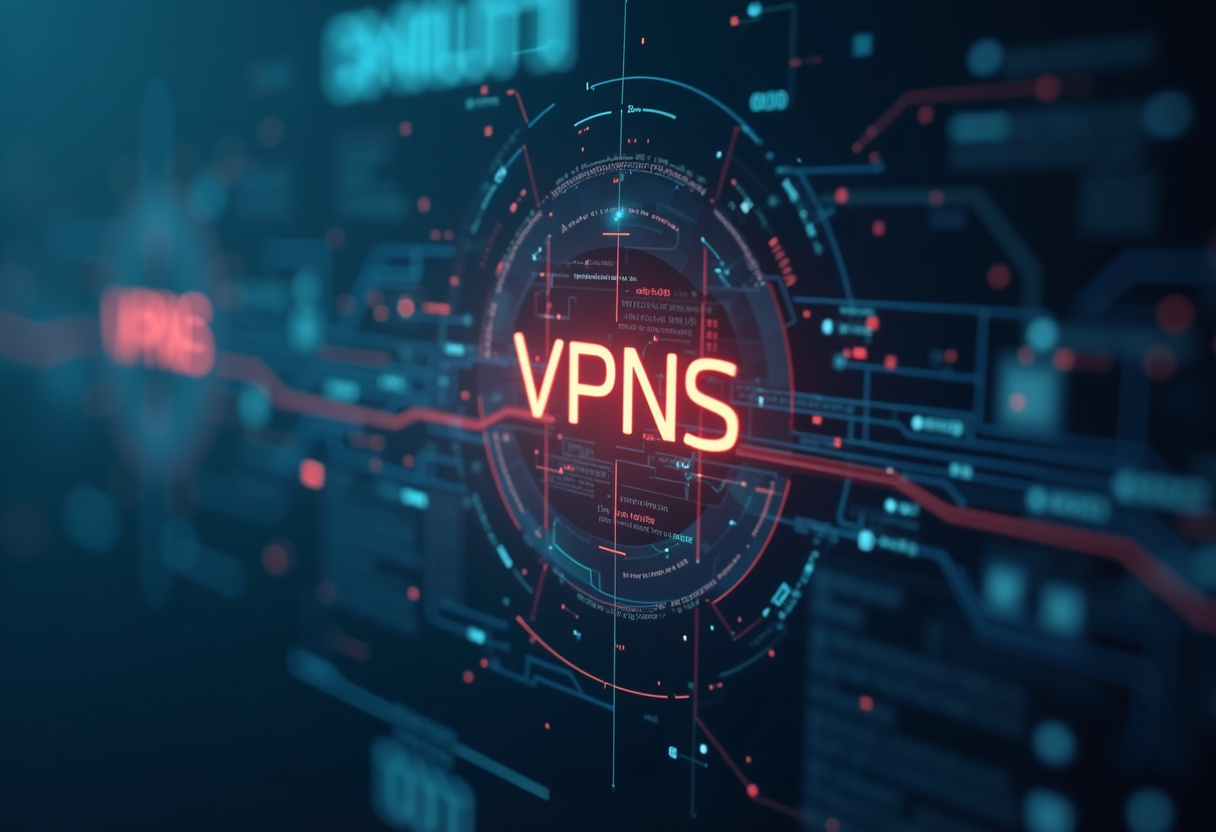
Table of Contents
The Growing Need for VPNs in On-Demand Services
In the burgeoning landscape of on-demand services, where convenience reigns supreme, the imperative to safeguard customer data has never been more critical. This article delves into the pivotal role that Virtual Private Networks (VPNs) play in fortifying the security posture of on-demand platforms, ensuring the confidentiality, integrity, and availability of sensitive customer information. From streaming entertainment and food delivery to ride-sharing and online marketplaces, these services have become deeply embedded in our daily routines, necessitating a robust security framework to protect the vast amounts of data they handle.
As cyber threats become increasingly sophisticated, on-demand service providers must embrace VPNs as a cornerstone of their security strategy, establishing a secure and encrypted connection through which users can engage with their services without fear of data breaches or privacy violations. The proliferation of on-demand services has created a vast and interconnected ecosystem, where customer data flows seamlessly across various platforms and devices. This data includes personally identifiable information (PII) such as names, addresses, phone numbers, and email addresses, as well as financial details, location data, browsing habits, and even biometric information in some cases.
The sheer volume and sensitivity of this data make on-demand services a prime target for cybercriminals, who seek to exploit vulnerabilities and gain unauthorized access to valuable customer information. Data breaches can have devastating consequences, leading to identity theft, financial fraud, reputational damage, and legal liabilities. Therefore, on-demand service providers must prioritize data security and implement comprehensive measures to mitigate these risks.
A VPN acts as a crucial line of defense by encrypting internet traffic, rendering it unreadable to unauthorized parties who may be attempting to intercept or eavesdrop on communications. Encryption transforms sensitive data into an indecipherable format, using complex algorithms to scramble the information and make it unintelligible to anyone without the decryption key. This encryption process extends to all types of data transmitted over the network, including usernames, passwords, credit card numbers, and personal communications.
By establishing a secure and encrypted connection between the user's device and the VPN server, a VPN effectively creates a tunnel that shields data from prying eyes. This secure tunnel protects data as it travels across potentially insecure networks, such as public Wi-Fi hotspots or shared internet connections. This comprehensive protection is particularly important when users are accessing on-demand services over public Wi-Fi networks, which are notoriously insecure and vulnerable to hacking attempts.
A VPN ensures that their data remains confidential even when using these potentially risky networks, preventing cybercriminals from stealing sensitive information. Securing financial transactions is a paramount concern for on-demand service providers, as many of these platforms rely on online payment processing to facilitate transactions between customers and providers. Online payment systems are vulnerable to various types of fraud, including credit card theft, phishing attacks, and malware infections.
A VPN enhances transaction protection by encrypting payment data and masking the user's IP address, making it more difficult for hackers to intercept or trace financial transactions back to the user. The on-demand VPN routes traffic through a secure server, concealing the user's actual IP address and replacing it with one belonging to the VPN server. This IP masking process makes it virtually impossible to pinpoint the user's location or identity, adding an extra layer of anonymity to online transactions.
By preventing unauthorized parties from intercepting or tracing financial transactions, VPNs help protect customers from fraud and identity theft. With the increasing sophistication of cyber threats, the integration of a VPN service has become an indispensable layer of security for safeguarding customer financial data while they engage with on-demand services.
Understanding the Threats to Customer Data in On-Demand Platforms
Beyond encryption and IP masking, VPNs contribute significantly to customer data security through various mechanisms that address specific vulnerabilities and threats. One crucial aspect is the prevention of DNS leaks, which can compromise a user's privacy even when connected to a VPN. DNS (Domain Name System) is the system that translates human-readable domain names (e.g., google.com) into IP addresses that computers use to communicate with each other.
When a user visits a website, their device sends a DNS request to a DNS server to resolve the domain name into an IP address. In a normal scenario, when a user is connected to a VPN, all DNS requests should be routed through the VPN's DNS servers. However, in some cases, DNS requests may leak outside the VPN tunnel and be sent to the user's ISP's DNS servers instead.
This allows the ISP to track the user's online activity, even when they are connected to a VPN, effectively negating the privacy benefits of using a VPN. A reliable on-demand VPN incorporates built-in DNS leak protection to ensure that all DNS requests are routed through the secure VPN tunnel, preventing any sensitive information from being exposed to the ISP or other third parties. This protection typically involves configuring the VPN client to use the VPN's own DNS servers and disabling the use of the ISP's DNS servers.
By preventing DNS leaks, VPNs ensure that the user's browsing history and online activity remain private and confidential. This is particularly important for users who are concerned about their ISP tracking their online behavior or complying with government surveillance requests. Another critical security feature offered by VPNs is WebRTC leak protection.
WebRTC (Web Real-Time Communication) is a technology that enables real-time communication between web browsers and devices, allowing for features such as video conferencing and peer-to-peer file sharing. However, WebRTC can also be exploited to reveal a user's real IP address, even when they are using a VPN. This vulnerability arises because WebRTC uses STUN (Session Traversal Utilities for NAT) servers to discover the user's public IP address.
When a user is connected to a VPN, the STUN server may still be able to detect the user's real IP address, bypassing the VPN's IP masking. VPNs with WebRTC leak protection disable or block WebRTC functionality, preventing websites from detecting the user's real IP address. The VPN's configuration will either disable WebRTC entirely or route WebRTC traffic through the VPN tunnel, masking the user's real IP address.
This protection is essential for maintaining anonymity and preventing tracking by websites or other online entities that may be attempting to identify or profile users. In addition to DNS and WebRTC leak protection, some VPNs also offer built-in malware and phishing protection. These VPNs maintain databases of known malicious websites and phishing domains.
When a user attempts to access a website on this list, the VPN will block access to prevent the user from becoming a victim of malware infections or phishing scams. Similarly, these VPNs can scan downloaded files for malware and prevent the download of infected files, adding another layer of security against cyber threats. By acting as a protective shield against malware and phishing attacks, these VPNs can significantly reduce the risk of data breaches and protect customer data from being compromised.
This proactive approach to security can help prevent users from inadvertently downloading malware that could steal their data or compromise their devices.
How VPNs Offer Robust Protection for On-Demand Users
Data privacy is not merely a feature; it's a fundamental right that should be respected and upheld by all on-demand service providers. Customers should be able to engage with these services without apprehension, assured that their data is not being tracked, monitored, or misused. A VPN serves as an indispensable tool for fortifying privacy in the digital age, empowering users to take control of their personal information and safeguard it from undue intrusion.
By encrypting internet traffic and masking IP addresses, VPNs effectively thwart third parties from monitoring online activity and collecting personal data. Encryption ensures that all data transmitted between the user's device and the VPN server remains confidential, while IP masking conceals the user's true location and identity. This is particularly crucial in countries with stringent censorship laws or pervasive surveillance programs, where governments may attempt to monitor citizens' online activities and restrict access to certain websites or services.
In these environments, a VPN can provide a safe and secure way for users to access information and communicate freely, circumventing censorship and safeguarding their privacy. VPN use also offers the ability to bypass geo-restrictions, which are limitations imposed by websites or streaming services that restrict access based on a user's geographic location. These geo-restrictions are often implemented to comply with copyright laws or licensing agreements, limiting access to certain content to specific regions.
By connecting to a VPN server in a different country, users can spoof their location and access content that would otherwise be unavailable in their region. For example, a user in the United States could connect to a VPN server in the United Kingdom to access BBC iPlayer, a streaming service that is only available to UK residents. This is particularly useful for travelers who want to access their favorite streaming services or websites while abroad, or for users who want to access content that is not available in their country.
This freedom of access provides users with more control over their online experiences and ensures that they are not limited by arbitrary geographic restrictions. However, it is important to check the terms of service of the website or streaming service to ensure that using a VPN to bypass geo-restrictions is not a violation of their policies. Many on-demand VPN providers adhere to a strict "no logs" policy, meaning that they do not track or store any user data, including browsing history, IP addresses, or connection timestamps.
This policy ensures that user activity remains completely private and cannot be accessed by the VPN provider or any third party. A no-logs policy is a critical feature for users who prioritize privacy and want to ensure that their online activities remain confidential. However, it is important to carefully review the VPN provider's privacy policy to verify that they truly adhere to a no-logs policy.
Some VPN providers may claim to have a no-logs policy but still collect some user data, so it is essential to choose a provider that is transparent and trustworthy. By choosing a VPN provider with a strict no-logs policy, users can have peace of mind knowing that their online activities are not being tracked or monitored.
VPNs for Services: Enhancing Security and Privacy for Subscription-Based Offerings
Beyond the core benefits of security and privacy, VPNs also play a crucial role in enhancing the overall reliability and performance of on-demand services. In certain situations, users may experience slow internet speeds or inconsistent connections when accessing on-demand platforms, particularly when connecting from geographically distant locations or using congested networks. VPNs can help to mitigate these issues by optimizing network routing and improving connection stability.
One way that VPNs enhance service reliability is by circumventing bandwidth throttling, a practice employed by some Internet Service Providers (ISPs) to intentionally slow down traffic to certain websites or services. ISPs may engage in bandwidth throttling to manage network congestion or to prioritize certain types of traffic over others. This practice can significantly impact the performance of on-demand services, leading to buffering, lag, and poor video quality.
By encrypting internet traffic and masking IP addresses, on-demand VPNs can prevent ISPs from identifying the type of traffic being transmitted, making it more difficult for them to selectively throttle bandwidth. This ensures that users can access on-demand services without experiencing искусственное slowing down of their connection speeds. Another way that VPNs improve connection stability is by providing access to a wider range of server locations.
When a user connects to a VPN server, their traffic is routed through that server's network, potentially bypassing congested or unreliable network routes. By choosing a VPN server that is geographically closer to the on-demand service's servers or that is located on a less congested network, users can often improve their connection speeds and reduce latency. This is particularly important for users who are located far away from the on-demand service's servers or who are connecting from countries with poor internet infrastructure.
The ability to select from multiple server locations allows users to optimize their connection based on their specific needs and location. Furthermore, VPNs can provide increased resilience against DDoS (Distributed Denial of Service) attacks, which are a common type of cyber attack that can disrupt the availability of on-demand services. DDoS attacks involve flooding a target server or network with massive amounts of traffic, overwhelming its resources and making it unable to respond to legitimate requests.
This can result in service outages and significant disruptions for users. While VPNs cannot completely prevent DDoS attacks, they can help to mitigate their impact by distributing traffic across multiple VPN servers, making it more difficult for attackers to overwhelm any single server. Additionally, VPNs can mask the origin of traffic, making it more difficult for attackers to identify and target the on-demand service's infrastructure.
This increased resilience against DDoS attacks helps to ensure that on-demand services remain available and accessible to users, even during times of heightened cyber threat activity. In a competitive market, on-demand services must strive to provide a seamless and reliable user experience. VPNs can play a critical role in achieving this goal by optimizing network routing, improving connection stability, and providing increased resilience against DDoS attacks.
By integrating VPN technology into their infrastructure, on-demand service providers can enhance the reliability and performance of their platforms, leading to increased customer satisfaction and loyalty.
In conclusion, the integration of VPNs into the infrastructure of on-demand services is no longer a luxury but a necessity in today's threat landscape. By addressing critical concerns related to customer data security, transaction protection, privacy, and service reliability, VPNs provide a comprehensive solution for safeguarding the digital experiences of users in the on-demand economy. The multifaceted benefits of VPNs extend beyond mere encryption and IP masking, encompassing DNS leak prevention, WebRTC leak protection, malware and phishing protection, geo-restriction circumvention, bandwidth throttling mitigation, and DDoS attack resilience.
These features collectively contribute to a safer, more private, and more reliable online environment for both users and service providers. For customers, VPNs offer peace of mind knowing that their sensitive data is protected from prying eyes, their online activities are kept private, and their access to on-demand services is not restricted by geographic limitations or bandwidth throttling. This increased sense of security and control empowers users to engage with on-demand platforms with confidence, fostering trust and loyalty.
For on-demand service providers, VPNs provide a competitive advantage by enhancing the security posture of their platforms, reducing the risk of data breaches, and improving the overall user experience. By demonstrating a commitment to data security and privacy, service providers can build trust with their customers and attract new users who are increasingly concerned about online security. Furthermore, the increased reliability and performance offered by VPNs can lead to increased customer satisfaction and retention.
As the on-demand economy continues to evolve and expand, the role of VPNs will only become more critical. The increasing sophistication of cyber threats and the growing demand for online privacy will necessitate the widespread adoption of VPN technology across all types of on-demand services. Service providers who fail to prioritize data security and privacy risk losing customers and damaging their reputations.
The future of on-demand services depends on building a secure and trustworthy digital environment, and VPNs are an essential tool for achieving this goal. As technology advances, so too will the capabilities of VPNs. Future developments may include more sophisticated encryption algorithms, enhanced threat detection capabilities, and improved integration with other security solutions.
The continuous evolution of VPN technology will ensure that on-demand services remain secure and resilient in the face of emerging cyber threats. In this ever-changing landscape, it is crucial for both users and service providers to stay informed about the latest security best practices and to embrace VPN technology as an integral part of their online security strategy. By working together to prioritize data security and privacy, we can create a safer and more trustworthy on-demand economy for everyone.
The keywords "on-demand VPN," "customer data security," "transaction protection," "privacy," and "VPN for services" are intricately woven throughout this discourse, underscoring the central themes and reinforcing the SEO value of this article. This comprehensive exploration of VPNs in the on-demand context provides valuable insights for both users and service providers, empowering them to make informed decisions and take proactive steps to protect their online experiences.
Stay Updated
Get the latest VPN news, tips, and exclusive deals to your inbox.

